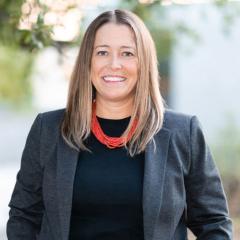Broadening our fellowship eligibility requirements
This post was co-authored by Executive Director Sarah Reed and Program Director Erin Lloyd. The decision to change the eligibility requirements was approved by the foundation’s Executive Committee in October 2019.
With the launch of the 2020 Switzer Fellowship application on November 1, we are pleased to announce a change to the eligibility requirements for a Switzer Fellowship. Specifically, we are expanding eligibility for the fellowship, which was previously limited to U.S. citizens, to include U.S. permanent residents (“green card” holders) and Deferred Action for Childhood Arrivals (DACA) recipients (“Dreamers”).
We believe that expanding the pool of eligible applicants for the fellowship program is an important step to advance the foundation’s commitment to embedding equity and justice across our programs and operations. This includes broadening representation of varied social, cultural, racial, and economic backgrounds within the fellowship program, removing structural barriers to address historical disadvantages for traditionally underrepresented groups, and providing leadership towards creating an inclusive community within the environmental field.
Students who are not U.S. citizens face disproportionate barriers to higher education, including higher rates of poverty, restrictions to accessing financial aid, and lower rates of college and graduate school attendance and completion. In addition, the Fellowship Eligibility Requirements are, as one of the first things a prospective applicant, recommender, or other website visitor will see, an important signal of the foundation’s values.
We were inspired to propose these specific changes to our eligibility requirements by those of our peer fellowship program, the Environmental Fellows Program, managed in collaboration between the University of Michigan and Environmental Grantmakers Association. We thank the Environmental Fellows Program for their leadership in supporting career advancement opportunities for historically underrepresented groups in the environmental field.
We look forward to welcoming applications from a wider pool of environmental leaders who have the expertise, commitment and passion for solving current and future environmental problems. Fellows and colleagues, we encourage you to share news of this change with your institutions and networks.
